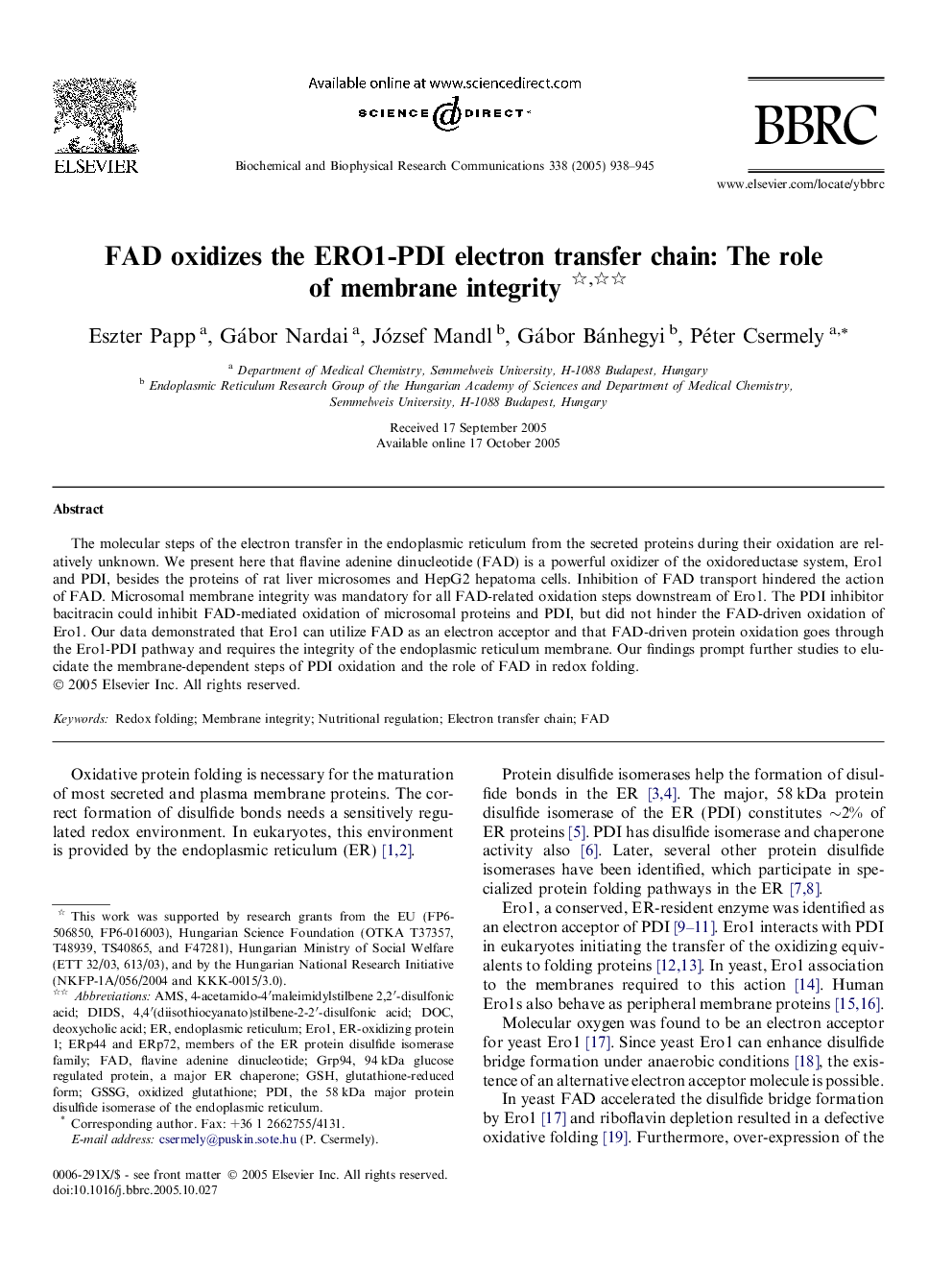| Article ID | Journal | Published Year | Pages | File Type |
|---|---|---|---|---|
| 10767890 | Biochemical and Biophysical Research Communications | 2005 | 8 Pages |
Abstract
The molecular steps of the electron transfer in the endoplasmic reticulum from the secreted proteins during their oxidation are relatively unknown. We present here that flavine adenine dinucleotide (FAD) is a powerful oxidizer of the oxidoreductase system, Ero1 and PDI, besides the proteins of rat liver microsomes and HepG2 hepatoma cells. Inhibition of FAD transport hindered the action of FAD. Microsomal membrane integrity was mandatory for all FAD-related oxidation steps downstream of Ero1. The PDI inhibitor bacitracin could inhibit FAD-mediated oxidation of microsomal proteins and PDI, but did not hinder the FAD-driven oxidation of Ero1. Our data demonstrated that Ero1 can utilize FAD as an electron acceptor and that FAD-driven protein oxidation goes through the Ero1-PDI pathway and requires the integrity of the endoplasmic reticulum membrane. Our findings prompt further studies to elucidate the membrane-dependent steps of PDI oxidation and the role of FAD in redox folding.
Related Topics
Life Sciences
Biochemistry, Genetics and Molecular Biology
Biochemistry
Authors
Eszter Papp, Gábor Nardai, József Mandl, Gábor Bánhegyi, Péter Csermely,
